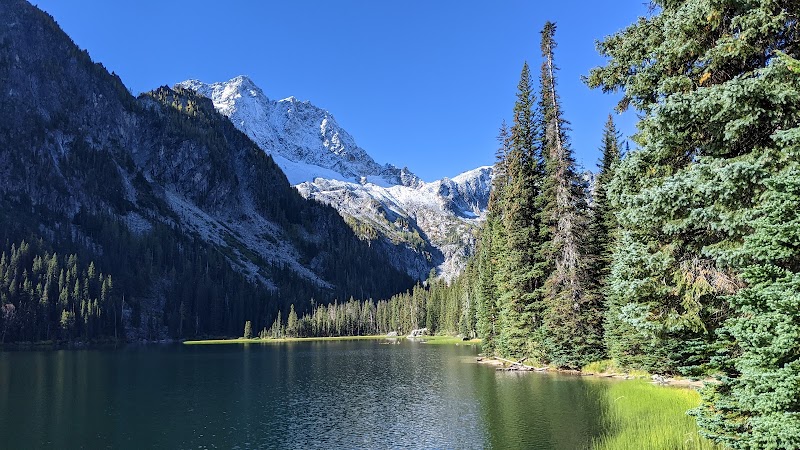
Rainbow Falls Scenic Reserve
Rainbow Falls Scenic Reserve offers a striking waterfall set amidst old-growth forest, providing visitors with excellent hiking, photography, and nature observation opportunities in the Pacific Northwest.
About Rainbow Falls Scenic Reserve

Rainbow Falls Scenic Reserve is located in the western foothills of the Cascade Range in Washington State. The reserve is centered around Rainbow Falls, a 100-foot tiered waterfall that cascades into a deep gorge surrounded by towering Douglas firs and Western redcedars. The area covers a mix of dense temperate rainforest and riparian habitats that support diverse wildlife, including black bears, various bird species such as the northern spotted owl, and native salmon populations in the adjacent streams. Historically, the reserve land was originally inhabited by indigenous peoples who utilized the area’s abundant natural resources. Designated to protect both the scenic waterfall and surrounding old-growth ecosystems, the reserve offers approximately 7 miles of maintained trails with viewing platforms, interpretive signage, and picnic areas. Visitors often come for hiking the main Rainbow Falls Trail, wildlife observation, and seasonal salmon runs visible in the nearby river. The reserve also appeals to photographers drawn by the waterfall’s rainbow effects on sunny days. Managed by the Washington State Department of Natural Resources, Rainbow Falls Scenic Reserve balances conservation efforts with public access, emphasizing low-impact use and education. The relatively moderate elevation and accessible trailheads make it a popular destination year-round, though the spring snowmelt period offers the most dramatic waterfall flows.
Highlights
Rainbow Falls waterfall with frequent prism rainbows in sunlight
Old-growth Douglas fir and Western redcedar forest habitats
Seasonal salmon spawning in adjacent river sections
Scenic river gorge viewpoints accessible via maintained trail
Notable Natural Features
Rainbow Falls
A 100-foot cascading waterfall that creates vivid rainbows on sunny days, serving as the reserve’s centerpiece.
Old-Growth Forest
Extensive stands of centuries-old Douglas fir and Western redcedar trees provide critical habitat and scenic canopy views.
Salmon Spawning Streams
Nearby clean streams support native salmon populations, visible during spawning season from designated viewing points.